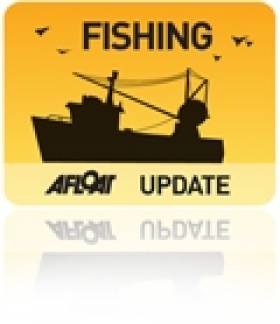Displaying items by tag: Blue Whiting
Progess at Blue Whiting Fisheries Negotiations in Ireland
#fisheries – Minister for Agriculture, Food and the Marine, Simon Coveney TD today welcomed the progress made at the international Blue Whiting Fisheries negotiations in Clonakilty.
The Minister said "I am pleased that serious efforts were made this week to resolve the contentious issue of how this important fish stock is shared between the various parties. The current sharing arrangement for this large fish stock, which is heavily fished to the north west of Ireland and Scotland in the springtime, has broken down .The European Union and other parties are looking for a fairer long term sharing arrangement of this valuable resource."
The Minister reported that at this week's negotiations "The European Commission made a strong case for an increased EU share, which would also mean an increase in Ireland's quota. It's unfortunate that a final agreement was not possible with our international partners in this fishery but substantial progress was made in the negotiations. I am hopeful that an equitable sharing arrangement can be found when the parties next meet."
Negotiations on international management of the very large North East Atlantic Blue Whiting fishery began last Tuesday and were hosted by Ireland on behalf of the European Union at the National Seafood Centre in Clonakilty, Co. Cork. Delegates from France, United Kingdom, Spain, Sweden, Denmark, Netherlands Norway, Iceland, Faeroes Islands, as well as Ireland were in attendance.
The European Commission had requested that Ireland host the talks on behalf of the European Union at the National Seafood Centre. Fishing industry representatives were also present to monitor the negotiations. The Blue Whiting fishery is very important to Ireland and for 2015 the Irish quota is over 23,000 tonnes.
This quota is landed directly into Killybegs and is increasingly processed for human consumption in fish factories in Killybegs , who have pioneered the use of this resource for human consumption. In addition to the catch by the Irish fleet, vessels from Norway & the United Kingdom have landed over 32,000 tonnes of Blue Whiting into Killybegs this year, creating additional employment in the fish processing industry.





























































